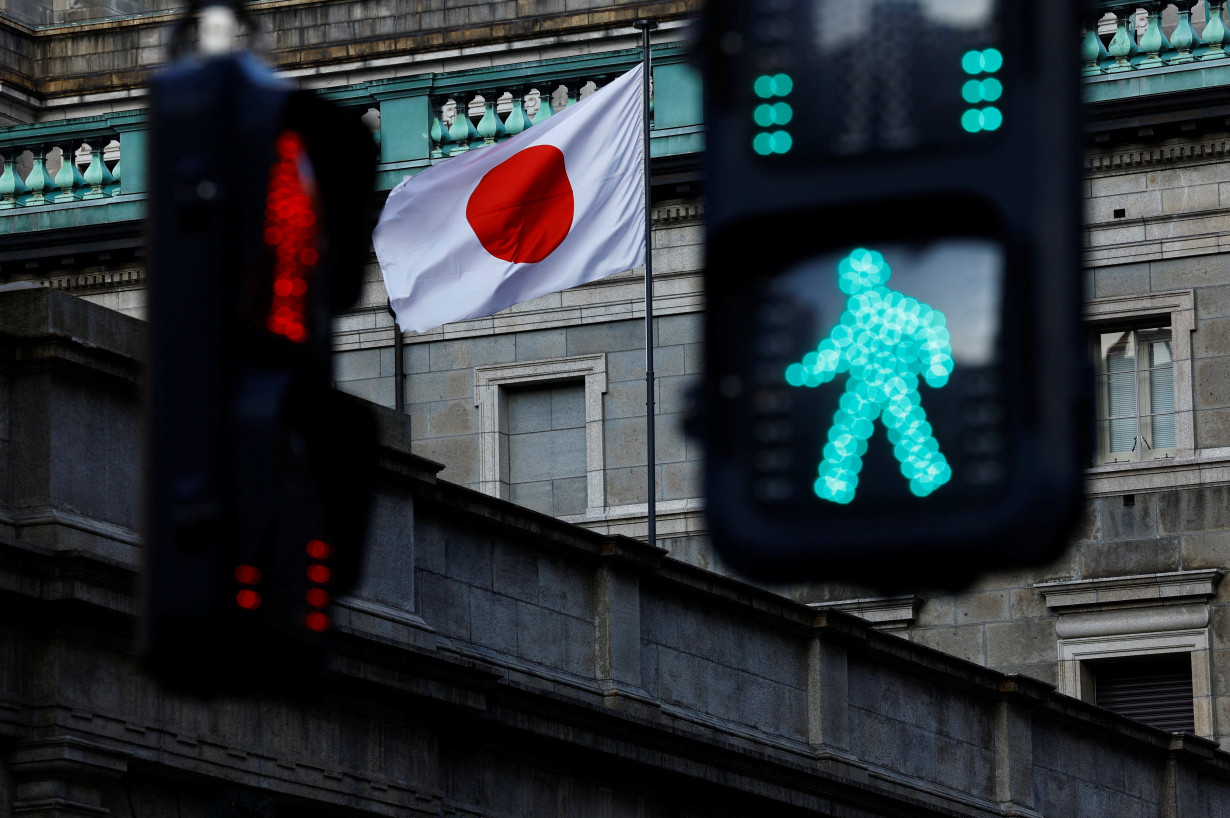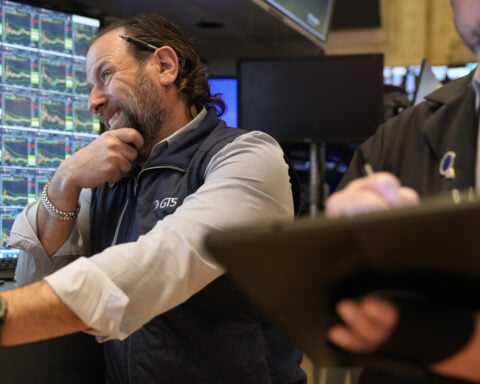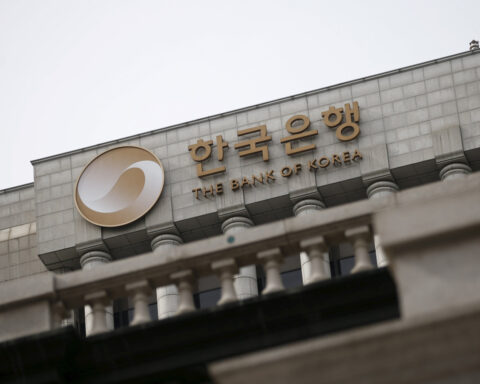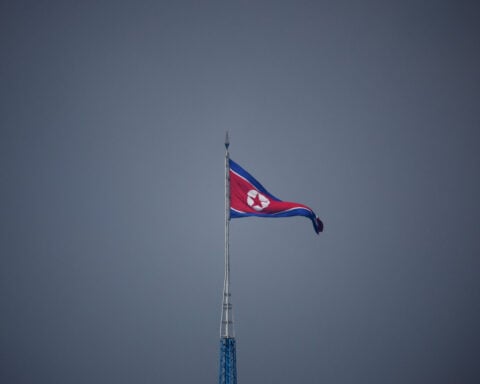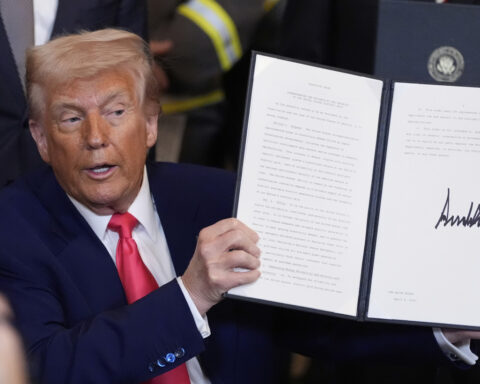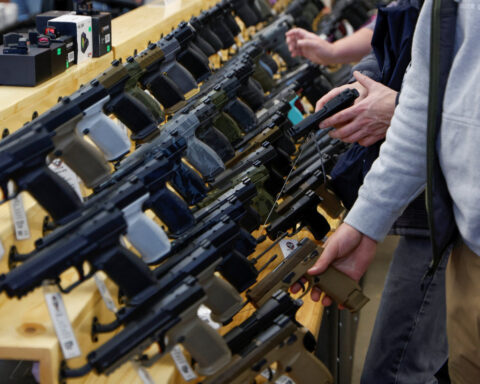By Leika Kihara
TOKYO (Reuters) - New U.S. tariffs announced by President Donald Trump may delay, but likely won't derail, the Bank of Japan's plan to raise interest rates further as policymakers seek to avoid renewed yen falls that would worsen inflationary pressures.
Trump's decision to slap a 25% levy on auto imports, and a reciprocal 24% tariff on other Japanese goods, will deal a huge blow to the export-heavy economy with analysts predicting the higher duties could knock up to 0.8% off economic growth.
The stunning moves by Trump upend the BOJ's expectations that big exporters will use overseas profits to lift local pay, which would drive a cycle of wage and price increases, seen as a prerequisite for more interest rate hikes.
With fears of a global recession looming, the BOJ is likely to cut its economic growth forecasts and hold off raising rates at its next meeting concluding on May 1, analysts say.
But there is less certainty about just how long the BOJ will be able to keep rates where they are given mounting inflationary pressure at home that has drawn warnings from hawkish members of the board.
"At the very least, a rate hike on May 1 is off the table given the expected hit to Japan's economy from U.S. tariffs," said former BOJ top economist Seisaku Kameda, who is now executive economist at Sompo Institute Plus.
"But I won't rule out a rate hike in June or July, as the BOJ is caught in a dilemma of having to balance downside risks to the economy and domestic inflationary pressure," he said.
While raising rates too aggressively could hurt growth, sounding too dovish on the rate outlook could prod investors to scale back bets of a near-term action, and trigger a renewed, unwanted and inflationary yen slide.
BOJ Deputy Governor Shinichi Uchida told parliament on Friday the central bank would continue raising rates if the economy moves in line with forecasts, while keeping a close eye on risks to growth from tariffs.
Whatever the BOJ's ambitions, markets are quickly ruling out the chance of further rate hikes. Shares of Japanese banks plunged on Friday on fears U.S. tariffs could choke Japan's fragile economic recovery and snuff out the BOJ's efforts to lift rates away from the low levels that have squeezed lenders' profits.
Inflation has exceeded the BOJ's 2% target for nearly three years due in part to a weak yen that boosted import costs, a stark contrast to Japan's 25-year battle with deflation that kept rates near zero.
Headline inflation hit 3.7% in February on stubbornly high food costs which, coupled with steady wage increases, have heightened wider calls to keep raising interest rates.
QUARTERLY REPORT KEY
While the BOJ has raised rates three times under Governor Kazuo Ueda, its policy rate is still at 0.5% - well below U.S. and European counterparts. Adjusted for inflation, Japan's borrowing costs remain deeply negative.
In keeping rates steady in March, some board members warned the recent surge in food prices could persist, and that Trump-related uncertainty alone should not keep the BOJ from "acting decisively" against inflation.
"Domestic economic and price developments are on track, so it would have been hard to come up with a reason not to raise rates on May 1," said veteran BOJ watcher Mari Iwashita.
"Trump tariffs gave the BOJ an excuse to stand pat for now, though I'm sure it will proceed with policy normalisation and hike rates again when the opportunity pops up," she said.
A Reuters poll in March showed many analysts expect the BOJ's next rate hike to come in the third quarter, most likely in July. After the April 30-May 1 meeting, the BOJ board holds a policy meeting in June and July.
The BOJ's quarterly outlook report, set for release after the May 1 meeting, will be scrutinised for clues on how the board balances Trump tariff risks and domestic price pressure.
Days before the rate review, Ueda is expected to debate the global economic outlook with G20 finance leaders gathering in Washington on the sidelines of the annual IMF meetings.
Already on Friday, Ueda said Trump's tariffs would likely weigh on Japan's economy and that the heightened uncertainty warranted vigilance in setting policy.
Former BOJ board member Makoto Sakurai, who retains close contact with incumbent policymakers, expects the BOJ to hike rates once more to 0.75% either in May or June, then pause.
"The BOJ's preference is to keep raising interest rates steadily and reduce its massive balance sheet. But it faces a difficult trade-off as Trump's tariffs will almost certainly hit the economy hard," he told Reuters, adding a hike to 1% may take until well towards the end of Ueda's term in 2028.
"In the end, the BOJ may feel it's done enough if it can take short-term rates to 1%."
(Reporting by Leika Kihara; Editing by Sam Holmes)

 Trump has begun another trade war. Here's a timeline of how we got here
Trump has begun another trade war. Here's a timeline of how we got here
 Canada's leader laments lost friendship with US in town that sheltered stranded Americans after 9/11
Canada's leader laments lost friendship with US in town that sheltered stranded Americans after 9/11
 Chinese EV giant BYD's fourth-quarter profit leaps 73%
Chinese EV giant BYD's fourth-quarter profit leaps 73%
 You're an American in another land? Prepare to talk about the why and how of Trump 2.0
You're an American in another land? Prepare to talk about the why and how of Trump 2.0
 Chalk talk: Star power, top teams and No. 5 seeds headline the women's March Madness Sweet 16
Chalk talk: Star power, top teams and No. 5 seeds headline the women's March Madness Sweet 16
 Purdue returns to Sweet 16 with 76-62 win over McNeese in March Madness
Purdue returns to Sweet 16 with 76-62 win over McNeese in March Madness
